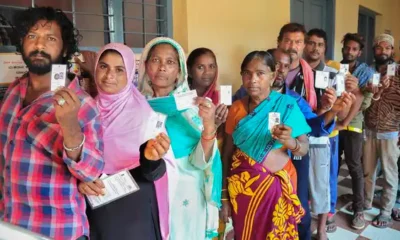

The Federation of Automobile Dealers Associations (FADA), representing India’s Automobile Retail Sector, has partnered with Frost & Sullivan to lead an ambitious initiative known as the...


The central government has permitted exports of 14,000 tons of non-basmati white rice to Mauritius. The central government has granted approval for the export of 14,000...


In April, liquefied natural gas (LNG) futures trading volumes experienced a significant surge amidst rising demand and geopolitical tensions, indicating robust activity in anticipation of the...


The Indian government’s National Broadcasting Policy has encountered significant criticism from television broadcasters, film and TV producers, and other industry bodies who argue that the proposed...


India is set to join the select global club of metro train rolling stock manufacturers with the introduction of domestically manufactured 12-coach trains. These trains, extendable...


NielsenIQ noted a shift as rural consumption outpaced urban demand in the March quarter, with rural markets experiencing a 7.6% surge compared to urban markets’ 5.7%...


The latest report from the United Nations Assistance Mission in Afghanistan (UNAMA) paints a bleak picture, revealing that a staggering 23.7 million people are in desperate...

The Supreme Court in the case Arun Muthuvel v. Union of India has elucidated the issues it will consider in a batch of petitions challenging provisions...


Despite concerns of declining voter engagement by percentage turnout, analysis underscores the importance of evaluating voting patterns by absolute numbers, revealing a significant increase with 20.7...

The share of Indian air carriers in international passenger traffic originating from, terminating in, or transitioning through India is set to surge 700 basis points (bps)...